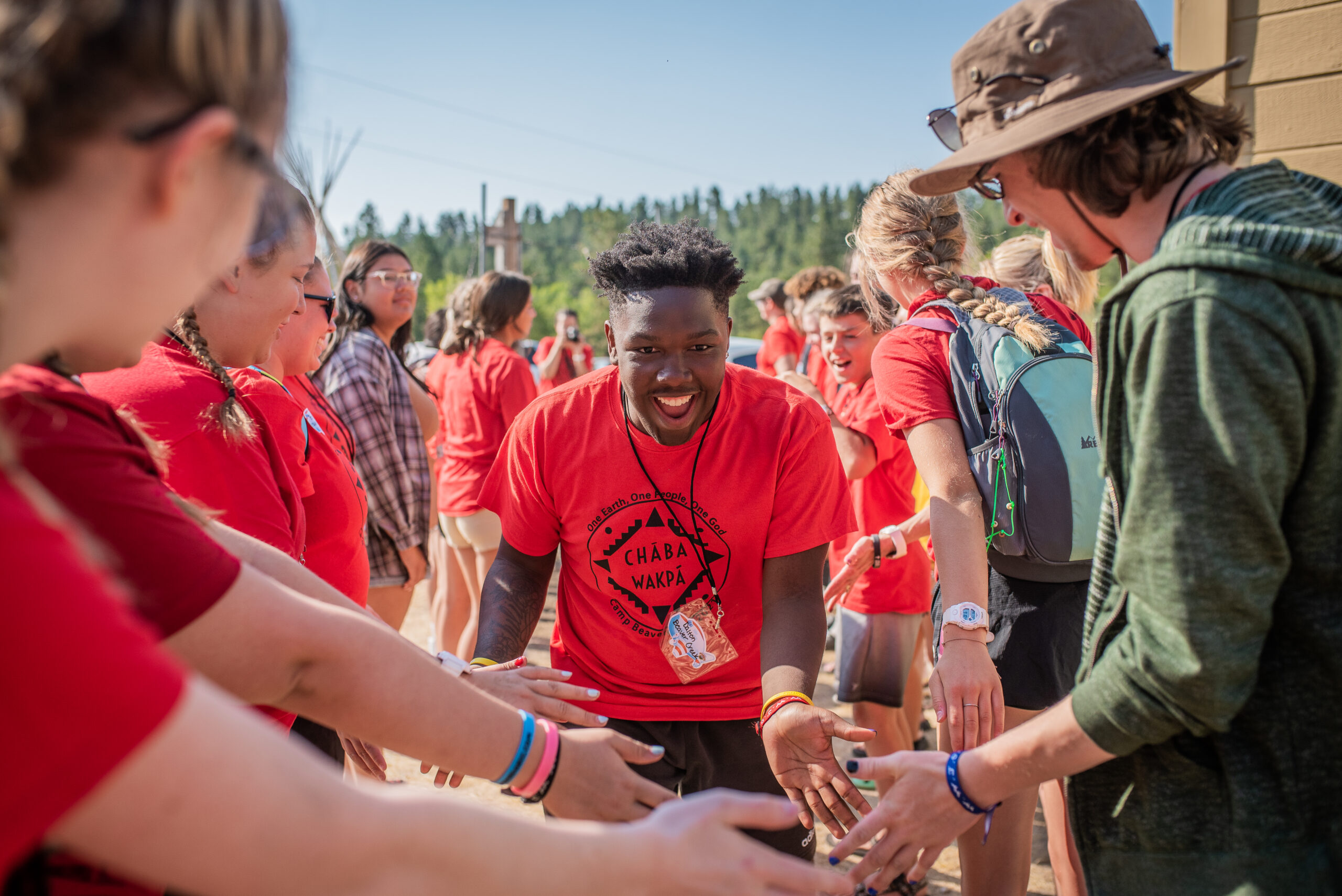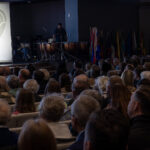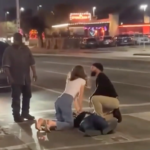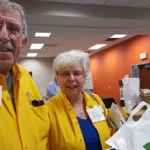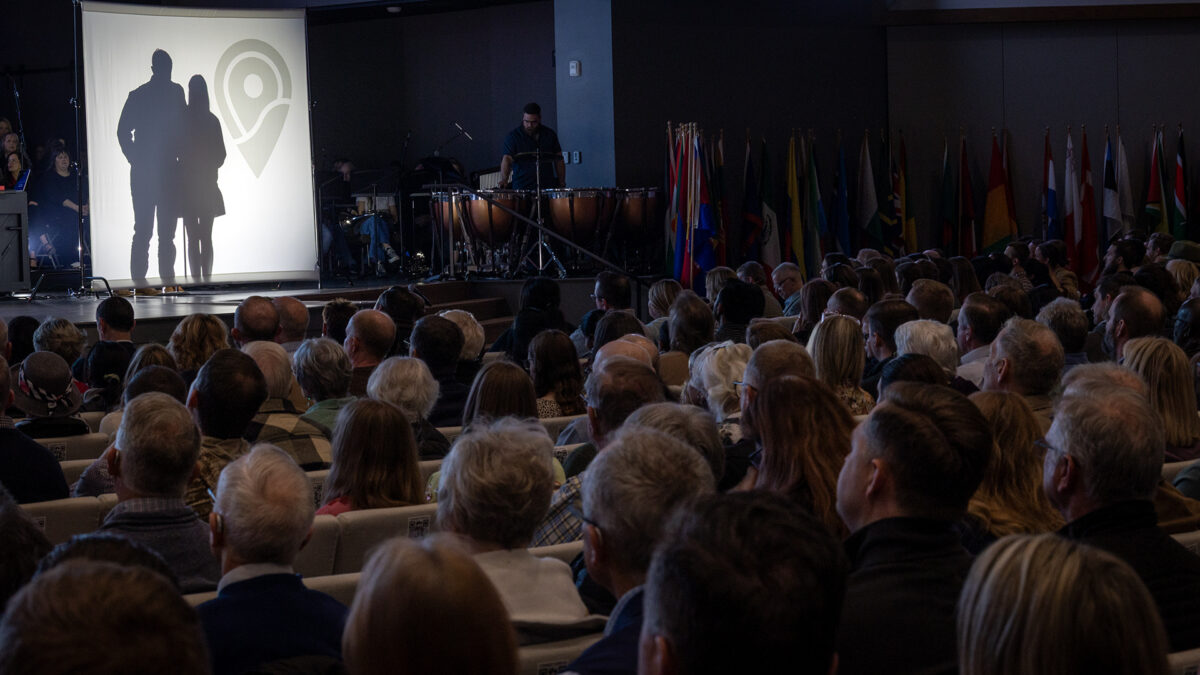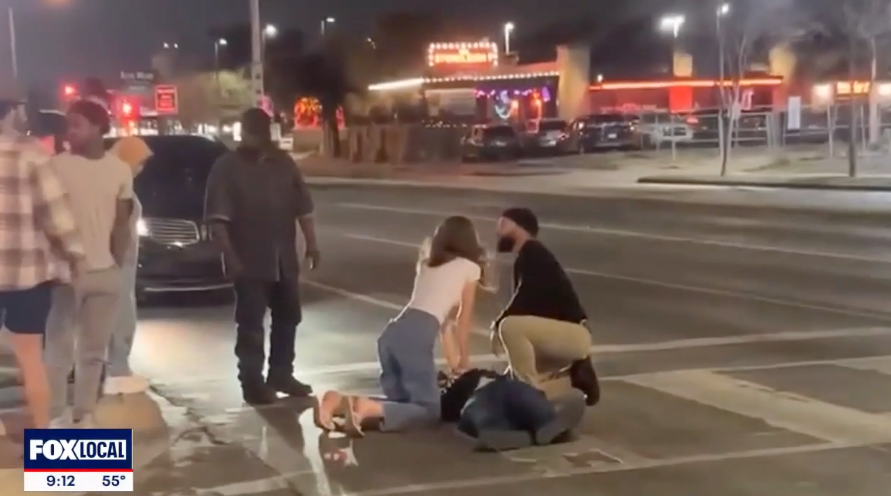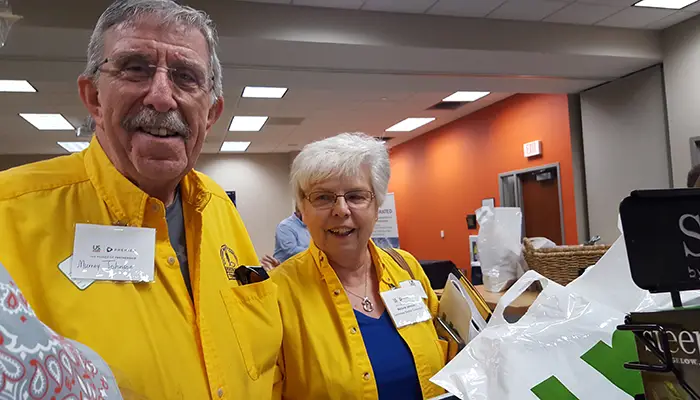Savannah Spotted Bird, 17, who is living in her 17th foster home, was one of 15 students who became Christ-followers during the Camp at Beaver Creek in July.
Located on the Fort Belknap Indian Reservation in north-central Montana, the two weeks of age-graded, overnight Vacation Bible School and cultural camps at the place known in the Assiniboine language as Cha’ba Wapka’ were some of the “Kingdom works” of Montana Indian Ministries.
“I became a Christian because of the safety,” Spotted Bird told The Baptist Paper. “People told me He would hold me, that in Heaven there is no pain or sorrow, or the alone feeling I had felt all my life.
“Now, all I want to do is to tell people about God, about Jesus,” she continued, motioning for a child about 5 years old to come to her. Spotted Tail was being treated to lunch after helping with laundry for the camp.
Spotted Bird removed a colorful “wordless bracelet” from her wrist and asked the child in a frilly pink dress, “Do you want a bracelet?” As she smiled shyly, Spotted Bird explained what each of the colors stood for, and ended with, “This is my gift to you, to help you remember God’s gift to you.”
Spotted Bird is being discipled one-on-one to help her grow in her Christian faith and commitment to serve God throughout her life.
‘Effectively reach people’
Bruce Plummer, who some 15 years ago founded Montana Indian Ministries, told The Baptist Paper his calling from God is to reach American Indians with the gospel message of God’s unconditional love for each person. He does this starting on the reservation where he was born, Fort Belknap, and reaching out to other reservations in the central part of the nation’s fourth-largest state geographically.
“I’m constantly trying to figure out how to effectively reach our people,” Plummer said. “My job is to take the indigenous people, who already believe in the Creator, from Genesis 1 — In the beginning, God created the heavens and the earth — to John 1 — In the beginning was the Word … and the Word was God — and I have to do it in a culturally contextually, relevant way.”
“One Earth, One People and One God” is Plummer’s overriding message. It’s a saying he came up with and has trademarked.
Plummer spoke to two pre-teens during the second week of VBS/cultural camp, overheard by The Baptist Paper. Plummer explained the difference to the boys between their physical bodies, which stop working and die, and their spiritual being, which God created to live forever.
“Each of us has the choice to spend eternity in Heaven or in Hell,” Plummer explained as they listened intently. “That choice belongs to each of us to make.”
The next day, a counselor told Plummer one of his campers “is so excited! He’s like a different kid!”
‘Serving people first’
Southern Baptists and other missions teams from a dozen states stagger their arrival throughout the summer at MIM to help with Bible school, basketball camps, foster family camps, construction projects, “pow wow” and mercy ministries, and more, assisting Plummer as he reaches Native Americans.
Plummer’s logistical planning involves arranging with teams the weeks they want to help with one of the eight weeks of camp, and the ministry they are most suited for, plus the food needed before an unknown number of campers and volunteers arrive, and enough housing for them.
Housing might be in one of 14 cabins built by volunteers, six teepees or four family-sized tents, arranged on a sizable grassy portion of the 40 acres given by the Fort Belknap Reservation to Plummer to be used for Indian youth.
“I just believe serving people first is so critical when you want to share the gospel with them,” Plummer said. “You can tell people all day long you love them but until you show them, they’re not going to hear you. It’s a core belief I have.”
Construction of a chapel addition to the kitchen built last summer, basketball camps and culturally-relevant backyard Bible clubs filled the first two weeks of MIM’s summer program this year. Two weeks of five-day overnight VBS and cultural camp followed, with curriculum written by Plummer to appeal to Indian students. Then came a four-day camp for foster families, which usually is followed by pow wow ministry, during which mission teams pick up trash and distribute water and coffee.
But that changed this summer as a result of an uptick of COVID-19 cases on the Reservation and in nearby Havre, Montana. Pow wow dates were postponed, sometimes canceled, and a restriction added: No off-Reservation visitors allowed to do more than watch trimmed-back proceedings.
The unexpected restrictions were part of the spiritual warfare prevalent on the reservation, Plummer noted, which finds a home in the minds of people whose parents, grandparents and others were mistreated in years past. This summer’s news of graves in Canada and the United States of indigenous youngsters from boarding schools added fuel to that fire.
‘Great spiritual battle’
“There is a great spiritual battle for the souls of the indigenous peoples of the Americas,” Plummer said. “I knew this battle existed the moment of my salvation 48 years ago.
“It took years of stumbling and failing before I understood this great spiritual battle belongs to God,” Plummer continued. “God has taught me my duties are to pray, serve, love and teach the truths of the gospel found in God’s Word. The Word of God itself has enough authority to win the spiritual warfare.”
The “word God gave me for this year” is “Listen,” Plummer told each week’s groups of mission teams.
“It seems like nobody wants to listen these days,” he lamented. “But these young people — all people — have a need to be listened to. So listen. Listen proactively, not for what you can say in response, but just to let them talk, to hear what they have to say, and let God work through that.”
About two-thirds of the teams have been to MIM in years past. Several churches have been eight times or more.
Craig Sims of Church at the Mill in Moore, South Carolina, spoke for those who return year after year.
“Long-term relationships are the most beneficial for the Kingdom,” Sims said. “Every year is a reunion of friends. Trust is established. We trust Bruce. We keep coming back because the work isn’t finished here.”
Steve Gabbie, of Central Baptist Church, Jonesboro, Arkansas, rented a Class C recreational vehicle and drove with four others to the camp, taking two-and-a-half days to get there — it was Gabbie’s third trip — and two-and-a half going home, he said. No sightseeing.
“We didn’t come to sightsee,” he explained. “We came here to serve the people here and be a witness to the Gospel of Jesus Christ.”

